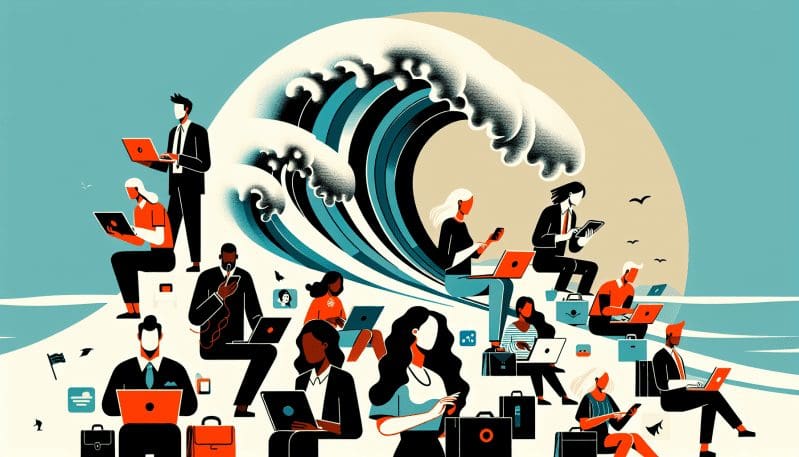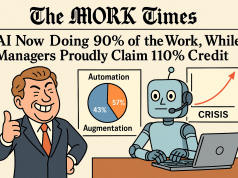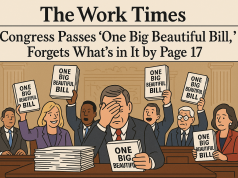In the past decade, we’ve witnessed a tectonic shift in the world of work – a move away from the traditional 9-to-5 employment towards a more fluid gig economy. This change, fueled by technological advancements and the desire for flexible work arrangements, has cast both opportunities and challenges in the face of conventional employment structures.
The gig economy encapsulates a labor market characterized by freelance, contract, or short-term jobs. Platforms like Uber, Airbnb, and Upwork have become the face of this economic shift, enabling people to work when they want, how they want, and for whom they want. This model has democratized work, providing entry points for a diverse workforce, including stay-at-home parents, students, and those looking to supplement their income. But what does this mean for traditional employment?
For one, job security, once a cornerstone of full-time employment, seems to be eroding. The predictability and stability that came with permanent positions are often absent in gig work. Career progression, too, follows a non-linear path, potentially disrupting professional development and long-term financial planning. Additionally, access to traditional benefits like health insurance, retirement plans, and paid leave is not a given in the gig economy, leaving many workers vulnerable.
Even as workers grapple with these issues, companies are reaping the benefits of the gig economy’s agility and cost-effectiveness. Businesses can adjust their workforce swiftly in response to market demands without the commitments that come with full-time employees. However, this also raises questions about employer responsibilities and the need for new policies that ensure workers’ rights are safeguarded in this emergent landscape.
The economic and societal repercussions of a predominantly gig-based labor market are complex. While some herald the freedom and empowerment it offers, others warn of a precarious workforce where instability is normalized. Policymakers and business leaders are being called upon to craft frameworks that provide security to gig workers, perhaps by reimagining social safety nets and labor laws to suit the changing nature of work.
If current trends persist, the workplace of the next decade will likely be an ecosystem where gig jobs operate alongside full-time roles, each with its own set of pros and cons. The gig economy’s flexibility offers an antidote to the rigidity of traditional work, yet the stability of full-time employment remains attractive. Finding a balance between these will be key.
Companies preparing for this evolving environment should consider embracing a blended workforce, investing in skill development, and fostering a culture that supports all types of workers. By doing so, they not only adapt to the changing landscape but potentially lead the charge in shaping a future that works for everyone.
In conclusion, the gig economy is not just a passing trend; it’s a significant evolution in the workforce. As technology continues to advance, it’s incumbent upon us to adapt, ensuring that progress includes the well-being and protection of all workers. By thoughtfully navigating these waters, we can create a labor market that’s resilient, diverse, and equitable – ready to meet the challenges of the future head-on.



























